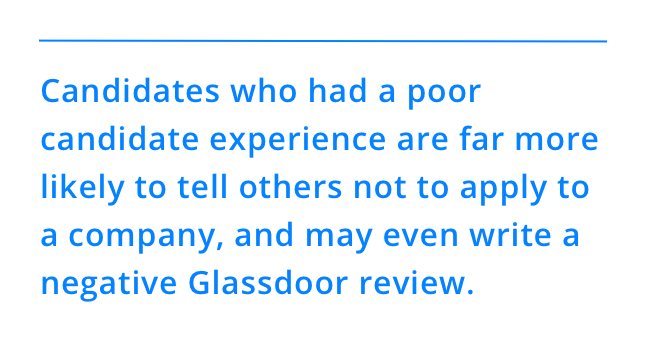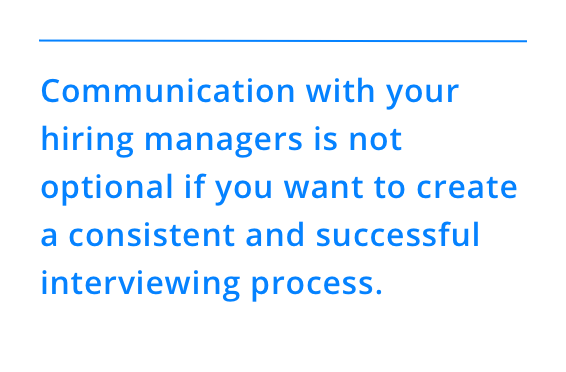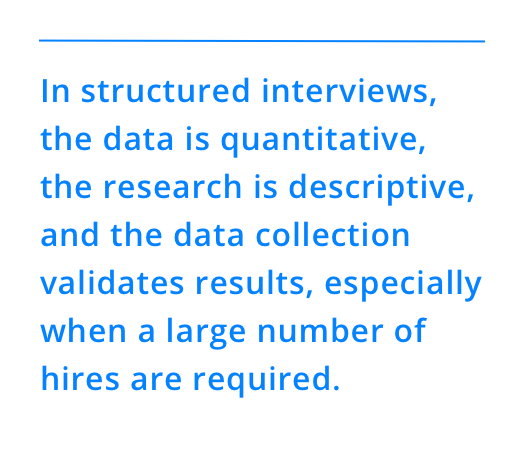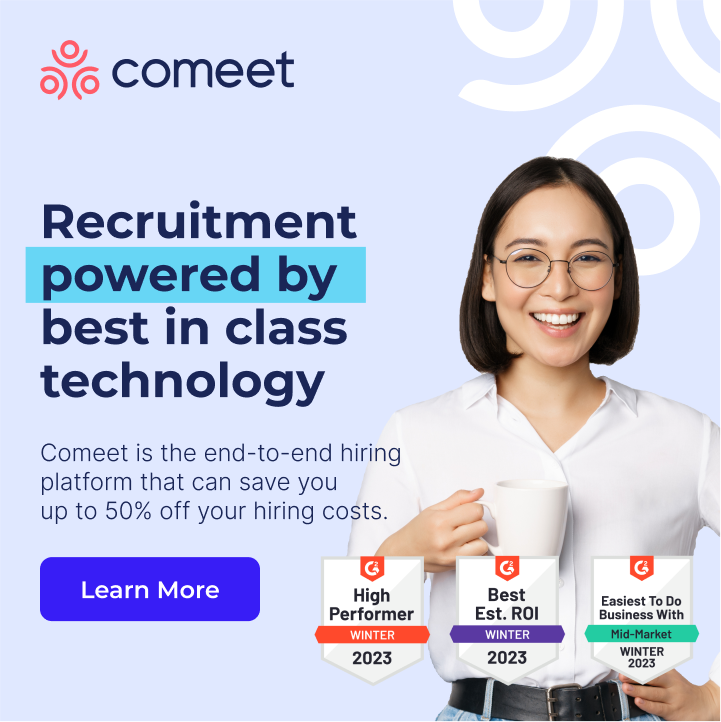To effectively attract top talent and stay competitive, organizations must reevaluate and enhance their talent acquisition processes to engage candidates before, during, and after the interview, using personalized communication at every step as part of an overall strategic candidate experience journey.
Related Resources
Learn More: Comeet Elastic Recruiting Get Your Guide: The Ultimate Guide for Hiring to Scale Quickly Get Your Guide: Choosing an ATS for high-growth companies. Get Whitepaper: The New Startup Scalability SuperpowerNeed help with your talent acquisition & recruitment?
Your Startup Scaling your Hiring in 2022?
Is Your ATS tech hindering your recruiting goals?
Do you know the myths from the facts on scaling startup hiring today?
Recent Bersin by Deloitte research shows that developing strong relationships with hiring managers is the top driver of talent acquisition performance and four times more influential than all the other performance drivers measured.
More specifically, it is imperative to enable effective hiring manager and team interviews. At the interview stage, candidates are excited to speak to a hiring manager but they still have expectations of a personalized and fair experience. In order to ensure a positive candidate experience through the interview process, hiring managers must be given the appropriate training, tools, and assistance to ensure interviews are effective and engaging, and then ensure everyone involved in the interviewing process applies the same predetermined system of measurement to their interviews.
Related: Our guide to improving and measuring your candidate experience.
If a job seeker had a poor experience during an interview a decade ago, he or she would be less likely to apply again in the future, accept a job offer, or buy that company’s products or services. They would also probably tell their inner circle about the poor experience.

Training Hiring Managers to Interview Well
According to Candidate Experience Awards data, candidates who were dissatisfied with the interview process cite distracted interviewers, late or no-show interviewers, and non-job relevant questions as key drivers of dissatisfaction. Begin with an assessment of hiring manager skill gaps based on interview audits and a general understanding of manager demographics. When introducing training for hiring managers (which should be mandatory from the CEO level, not “mandated” by HR), make sure you have executive buy-in. Present it as a refresher for longtime managers, and as new training for new hiring managers.

The interview is the single most important candidate selection tool after the application and/or resume. We have developed a list of interview suggestions and tips for managers: Recruiting and Interview Guide Tips.
Communication with your hiring managers is not optional if you want to create a consistent and successful interviewing process. Implementing a regular hiring manager feedback mechanism through surveys or focus groups or assigning dedicated account managers can align people around a joint goal: to hire the best qualified people for your company.
Legal and Compliance Issues in Interviewing
Interviewing consistency is not just important for the candidate experience, it also directly impacts legal and compliance issues. At the very basic level, training for hiring managers — especially those new to the industry — should cover what cannot be discussed or asked during an interview.
In the U.S. there are specific candidate questions that managers should avoid asking because they violate specific employment laws. If your candidate is located in California or New York, it is against the law to ask questions related to salary information.
Questions asked on application forms and during interviews can create significant legal problems for employers if the questions run afoul of federal, state, and municipal laws that prohibit unlawful pre employment inquiries.
The Americans with Disabilities Act (ADA) expressly prohibits disability-related pre employment inquiries made prior to extending a job offer to an applicant. Title VII of the Civil Rights Act of 1964 has no express prohibition, but the Equal Employment Opportunity Commission (EEOC) cautions that questions concerning an applicant’s age, gender, race, color, religion, or national origin may be used as evidence of discrimination. Other federal laws include provisions that protect the confidentiality of an applicant’s medical information, prohibit hiring decisions that discourage union membership, and restrict employment decisions based on an employee’s financial history.

In structured interviews, the data is quantitative, the research is descriptive, and the data collection validates results, especially when a large number of hires are required. From an HR compliance standpoint, having structured interviews helps make the hiring process consistent across all candidates lessening the risk for discrimination based on certain protected classes as discussed in Title VII, the ADA, GINA, and ADEA.
In an unstructured interview, the data is qualitative, the research is exploratory and often incomplete, and data collection is null, as the questions are more likely to probe personal details about a candidate to assess fit (and can often cross into the “too personal” category).
Read more on how to create a structured interview process in our post, The Hiring Manager’s Guide to Structured Interviews.
Are you looking to start your hiring process today? Comeet can help. Check out our plan options to learn more about how we can redefine the way you recruit new talent.

































